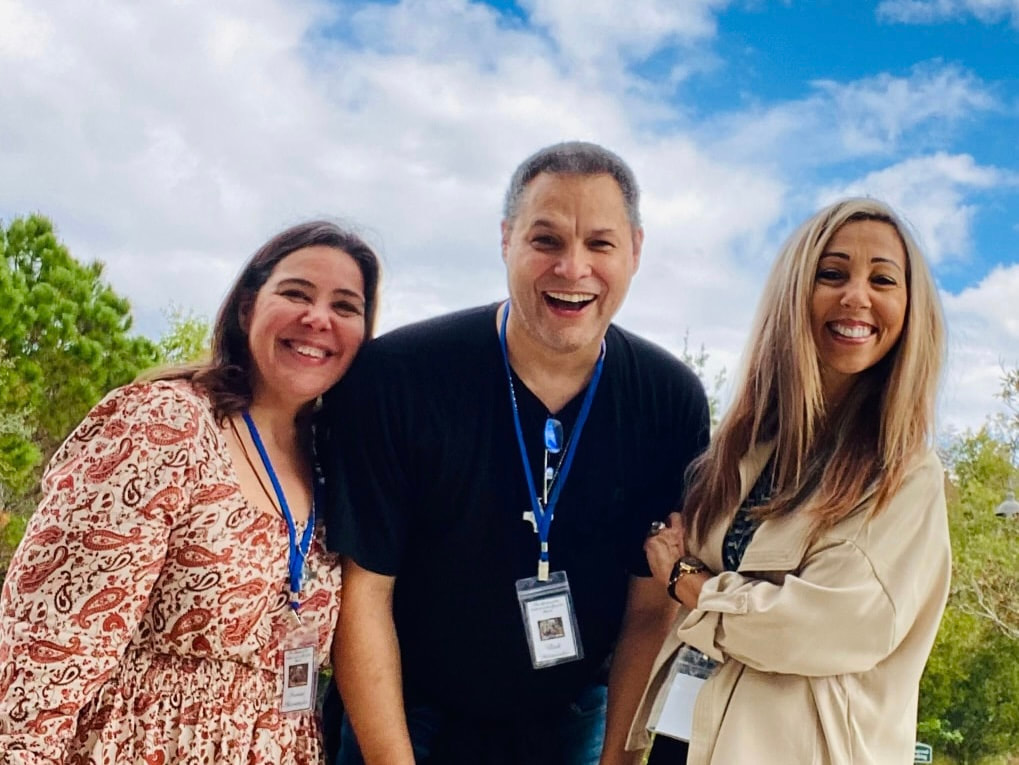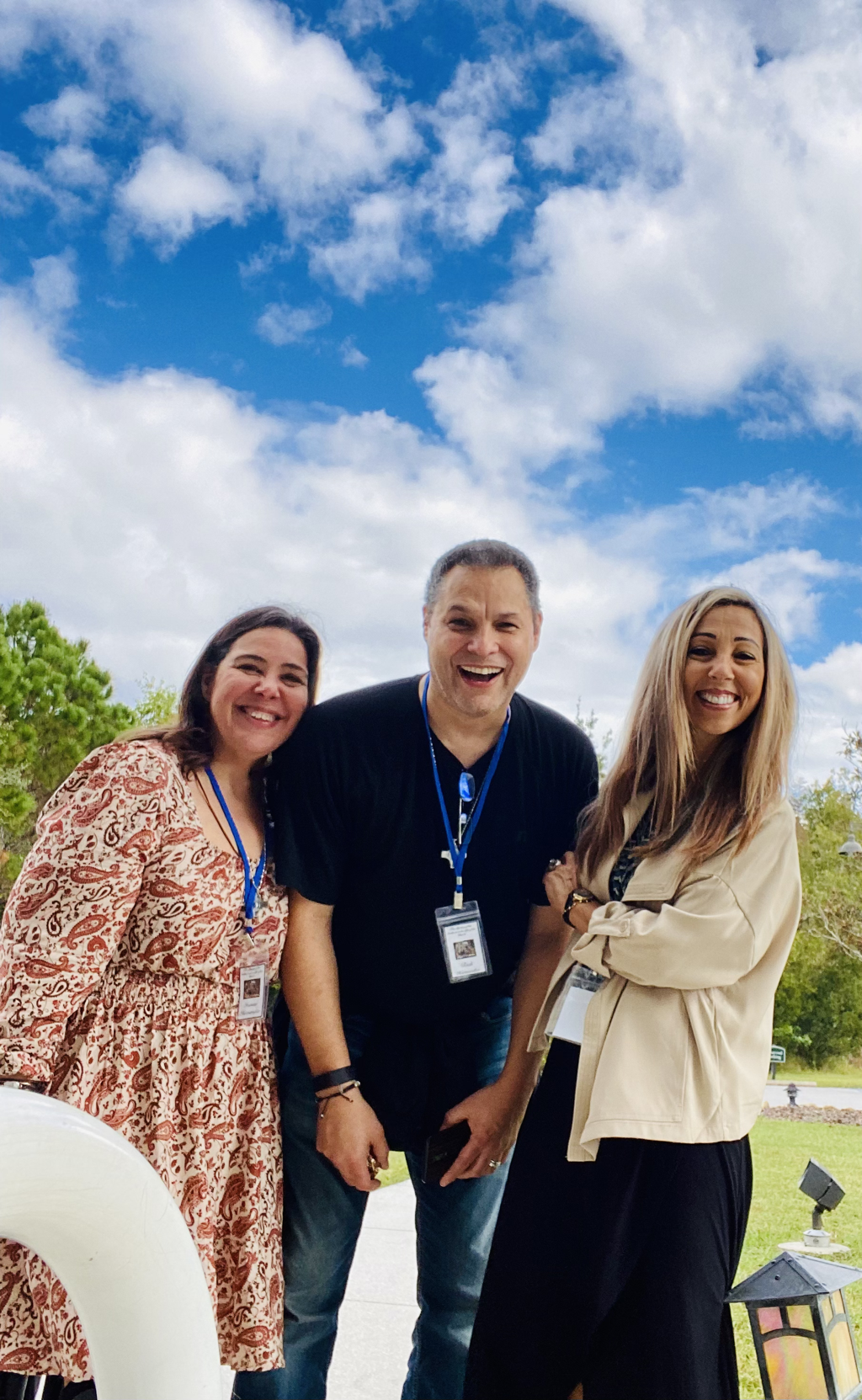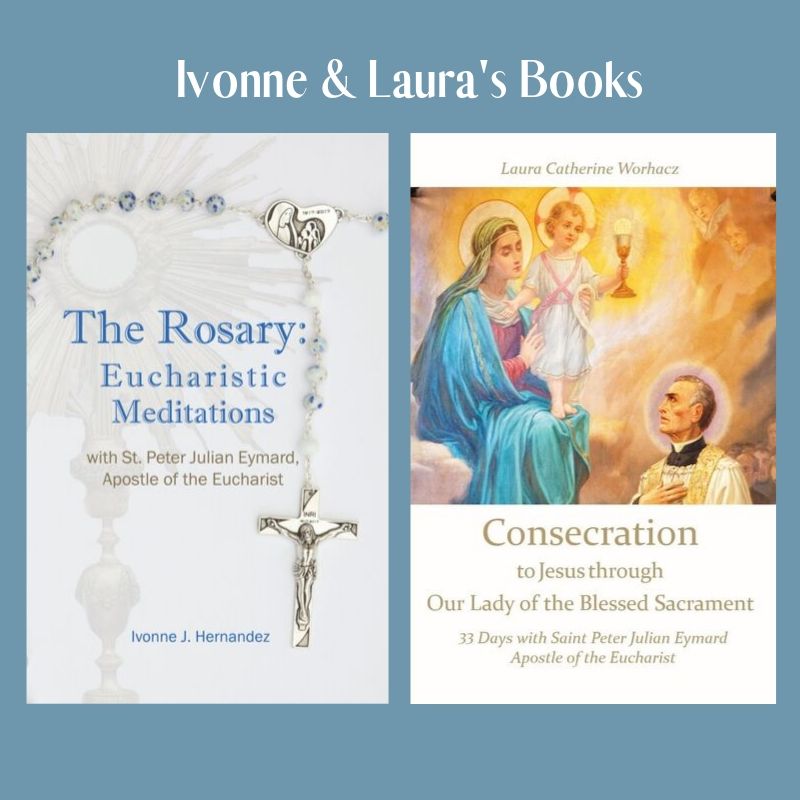ELISHEBA BLOGLaura, Ivonne, and Rick
write about their lives in the Eucharist. |
This is the beginning of the Parable of the Prodigal Son. The word “prodigal” means to be recklessly wasteful with our resources, spending our riches, talents, and gifts for no benefit. We do not want to be prodigal. I sometimes think of the many gifts that we are given and how we squander that beautiful inheritance and end up depleted. For many of us, it is not until we realize that we are barren from our wastefulness that we remember that it is not meant to be this way. Spiritually, wasting our gifts on our own desires and sins separate us from our Heavenly Father. This is sometimes done consciously and other times unconsciously. In the search for our own desires, we can forsake our dignity as sons and daughters of the Most-High, breaking our relationship with the Father. Yet, the same as the father in the story, God always acknowledges our dignity. He is always waiting for us to return, but to return we must consciously take that first step on the journey back to who God calls us to be.
We read of the repentance of the son coming from the realization of that which was lost, spent, and wasted. Do we realize this as well? Can we see all that we have been gifted, and all that we have wasted? Like the Prodigal Son in the parable, shouldn’t we also turn back? We repent from our selfishness, and gain humility in truth from our faults… We go back home to our Father, yet so many of us fear that we can’t be forgiven; that we can’t go back; that we can’t live a righteous life again… We must fight that fear from the lies the enemy sends our way. The enemy will tell us that we cannot go back to a life of Grace, and that we cannot be redeemed nor loved again. Who does this liar thinks he is that he can try to keep us from the One Who Loves Us? Let us not believe the lies of the enemy, Our Heavenly Father awaits us, just like the father in the story of the Prodigal Son.
When the father sees the son coming, he runs to the son! How much more would our Heavenly Father do for us? God reclaims us when we repent, runs to meet us with open arms, and thus restores our dignity as His sons or daughters. In the story, the father gave the son three things:
God forgives us. He restores us and gives us a purpose to live for, but He needs to hear and see our repentance.
If we have broken trust with the Father, we would do well to atone. Like the Prodigal Son, we acknowledge our faults and ask forgiveness, and to do that we approach Him who loves us. The Sacrament of Reconciliation is where we go to do this. We approach with humility, love, and hope. Through our sincere repentance and the Sacrament of Reconciliation, we are reclaimed and restored.
In my carefree youth, whenever I did something wrong, I doubted my worth and value. This would show up behaviorally as depression and sadness, and it was very rough for me. My parents would notice my struggles and embrace me. I was lovingly reminded that I was not perfect and that I was not expected to be. I was reminded that we are meant to ask for forgiveness, learn from the experience, and do better next time. This embracing and teaching from them was their love for me in action. It was them claiming me. And is not God’s love for us greater than our parent's love? We learn from our faults and commit to do better. We repent and let ourselves be loved and claimed. Our Father loves us, but it is on us to act as the sons and daughters of God that we are. After we are again restored, we are to live our gratitude. Our very lives are our gift to the Father as an offering of love.
At every Mass, we can approach the Throne of Glory, Mercy, and Love. Let us humbly approach in our dignity as sons and daughters. Let us imagine ourselves in the river Jordan, soaking wet in our white garments while being presented to the world, our dignity acknowledged as we hear our Divine Father say to us "This is my beloved, in who I am well pleased" and let us stay there for a moment… Let us allow our loving Father to embrace us and let Him bask in the love He has for you, for me, for us... He is claiming us as His sons or daughters. He is doing this for all to see... such is His love for you and me. Our Father is here for US. How will we respond? Let us pray: Heavenly Father, we are your children, your beloved. May we be ever reminded of our dignity as Your very own at every moment of our lives, that we may glorify You in all that we do and wherever we go. Amen.
0 Comments
A priest friend once told me: “Our eyes are how we see the world, but the eyes only produce images, impressions of the light on the world. Interpreting the images is what 'seeing' is. Both our intellect and our soul give meaning to the images we see to gain insight from them, but too often, we just see with the eyes of our intellect, as most of the world sees. We have to learn how to see better with the eyes of the soul, for that is how we gain wisdom”. In the first letter to the Ephesians, St. Paul tells us to pray to God for a “spirit of wisdom,” that is, for the Holy Spirit’s wisdom to come forth to us. From our relationship with the Holy Spirit, active in our lives, we gain both the exercise of the theological and moral virtues and the use of the gifts of the Holy Spirit. Among the gifts that we receive are wisdom, knowledge, understanding, and awe. These gifts are directly related to each other, for they pertain to “seeing.” Paraphrasing St. Thomas Aquinas, the gift of wisdom is to be able to see the work of the hand of God in all things, in our lives, and in the world. If we use St. Paul’s words from Ephesians 1, wisdom is to “have the eyes of our hearts enlightened.” We are enlightened. The gift of knowledge is recognizing our purpose as children of God and how He relates to us. This is that we “may know what is the hope that belongs to His call”. We are able to focus. The gift of understanding is the ability to comprehend how we are to live as followers of Christ. The moral issues become apparent. We are able to discern. Along with this wisdom, knowledge, and understanding, we can also receive the gift of awe, which is to see and comprehend “the surpassing greatness of his power for us who believe, in accord with the exercise of his great might.” We are able to stand in awe of the greatness of God. I have always been more intellectual than anything else. I have always strived for “understanding” as a means to better myself and to help others. I often, mistakenly, thought that knowledge and understanding would inevitably lead to “wisdom.” That is not the case, though it helps. For the true gift of wisdom to be active in our lives, we must cozy up to the Holy Spirit. We must strive to see the world a little differently, through the eyes of our soul and through the eyes of Christ. The eyes of the soul are opened by the virtues, and living the virtues invariably leads to a life of Grace. Grace is a gift, just like the gifts of the Holy Spirit. If we live a life of Grace, then our life itself becomes a gift, an offering to our Lord. More than anything, we must strive to live in this world with virtue. That is what makes ordinary people into saints. Extraordinary, heroic virtue comes after common, ordinary virtue has become a regular part of our lives. Many Saints recognized the role of the mundane and ordinary in this world. When seen through the “eyes of the soul,” the mundane becomes the foundation of our heavenly work on this Earth.
Let us pray: Lord, you are the creator of all that is seen and unseen. You have left us your Holy Spirit to guide us toward the path to Heaven. Help us then to be open to the promptings of your Spirit, that through His guidance we may achieve a virtuous life. Help us see the world as you see it, so that our love may be like yours. May your precious gifts to us also be a gift for our brothers and sisters, and that our eyes be opened by your Grace. Amen.
Having a door opened for us is such a simple way of service, but an important one, for love is what opens doors... Let us think about that for a moment. Let me tell you the story of the porter of St. Bonaventure Monastery. Bernard Francis Casey was a native of Wisconsin, born in 1870 to an Irish household surrounded by the German culture of the area. Bernard was a simple man, devout to our Mother Mary from youth. He felt called to the priesthood and entered the seminary in Milwaukee, WI. While there, Bernard was dedicated but not a very good student, struggling the most with languages, especially with German which was required in the seminary. Eventually, because of his academic struggles, Bernard was dismissed from the seminary, yet his devoutness and effort were enough to convince his advisors that he had a real vocational call to serve the Lord. Bernard was referred to the Capuchin Franciscan community of Detroit, MI for its novitiate program. He was struggling with the decision of whether to go or not, and whether to leave the known for the unknown. In prayer, he posted the question to our Blessed Mother Mary, whom he consulted in everything, and heard her clearly respond: "Go to Detroit", and thus started his blessed journey. Bernard promptly set to attend the novitiate program in Detroit, MI. There he put on the habit of the Capuchins Franciscans and settled into a monastic life that fit him very well. While thriving in the life of the community, Bernard was again struggling with his studies... it was not for him to become learned and wise this way. Yet he was found to be devout, obedient, loving, and kind, so much in fact that he was still called to priestly ordination. Bernard took on Holy Orders but not as a fully empowered priest, but instead as a "simplex priest". A “simplex” priest could celebrate the Holy Mass but was not empowered to hear confessions nor preach a sermon... Bernard, in humility, accepted this call. For years, this humble priest acted as the porter of St. Bonaventure Monastery. Bernard’s ministry as a doorkeeper, first at Saint Bonaventure, but later on at other monasteries, allowed him the opportunity to watch, understand, and grow closer to the people. He took advantage of this to serve the needs of the community. He was accessible, easy to talk to, a great listener, and always of good humor. He was available, gentle, and humble. He took the time to speak to those in need of counsel, and his advice was renowned to always be on point, while his intercession was known to be effective, and miraculous, always telling people to "Thank God ahead of time!" Bernard believed in the Real Presence of God in the Eucharist, and he counseled people to attend Mass and receive Communion whenever possible, but in the cases where receiving Communion was not possible, he would counsel to ask Jesus to “come spiritually into your heart”. Spiritual Communion was dear to the heart of this humble priest and he counseled to use these words whenever needed: “Jesus, please come to me in spiritual communion. Send your body and blood gushing through my veins. Send your love into my heart, my soul, and my mind. Lift me up to your bosom and infuse me with your divine love. Amen.” Where did this wisdom come from for someone who could not "learn"? Where did all these great deeds come from for someone who was told he “could not”? God equips us all who offer ourselves to be in His service. He uses our gifts and our charisms. He uses who we are, not what we are not. Bernard Francis Casey took a new name when he was accepted into the Capuchin Franciscans, maybe you know him by that name. Solanus, now Blessed, and soon to be Saint Solanus Casey. For years Blessed Solanus Casey was kept from ordination for what he was not... He was finally ordained for what he was... and he became "an extraordinary example of a true Capuchin and a replica of Saint Francis." (Fr. Gerald Walker, OFM Cap.) In that humility of service, Father Solanus teaches us to thrive with what we have and to serve in what we can. In our vocation of service, we sometimes fall short of who we think we should be no matter what we do, yet let us be encouraged to try the best that we can with who we are and what we have. Blessed Solanus Casey is holding that door open for us, let us ask for his guidance and keep our minds and hearts open to what God wants of us. God created us for greatness, it is on us to find how to achieve that in His service, with active love and compassion, immersed in hope, and alight in faith. Blessed Solanus Casey, doorkeeper, intercede for us! Let us pray: Lord of Heaven and Earth, help us to thrive with what you have given us. Let us become Your loved servants, that Your Mission of Love and Mercy may be accomplished by Your use of our hands. Lord, light a vocational fire in the hearts of Your people. We pray for an increase in vocations to the Priesthood, and that the Eucharist be always available to Your faithful. We thank you, Lord, in advance. Amen.
|
Categories
All
FOLLOW US ON SOCIAL MEDIA:
AuthorsWe are Ivonne J. Hernandez, Rick Hernandez and Laura Worhacz, Lay Associates of the Congregation of the Blessed Sacrament, and brothers and sisters in Christ. |
Copyright © 2024 Elisheba House Inc.
Elisheba House is a 501(c)(3) non-profit organization. Federal Tax ID Number 84-1894146
Florida registration for Solicitations of Contributions #CH71652
A COPY OF THE OFFICIAL REGISTRATION AND FINANCIAL INFORMATION MAY BE OBTAINED FROM THE DIVISION OF CONSUMER SERVICES BY CALLING TOLL-FREE (800-435-7352) WITHIN THE STATE. REGISTRATION DOES NOT IMPLY ENDORSEMENT, APPROVAL, OR RECOMMENDATION BY THE STATE.
Florida registration for Solicitations of Contributions #CH71652
A COPY OF THE OFFICIAL REGISTRATION AND FINANCIAL INFORMATION MAY BE OBTAINED FROM THE DIVISION OF CONSUMER SERVICES BY CALLING TOLL-FREE (800-435-7352) WITHIN THE STATE. REGISTRATION DOES NOT IMPLY ENDORSEMENT, APPROVAL, OR RECOMMENDATION BY THE STATE.









 RSS Feed
RSS Feed